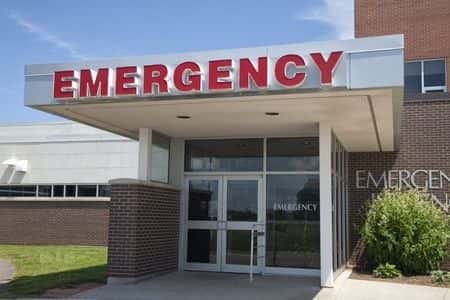Emergency Room Misdiagnoses Patient With Chest Pain
Updated on
Case Overview
This case involves a middle aged female with no past medical history. She was taken by EHS to an Emergency Room in the state of Nevada, with chest pain/chest burning, diaphoresis, and shortness of breath after riding her bike to work. These symptoms persisted with minimal exertion. The emergency room physician interviewed and examined the patient. The physician conducted an echocardiogram and found no abnormalities. The physician’s final diagnosis was “atypical chest pain” and the patient was discharged home. The patient’s symptoms continued, and she presented to her family medicine physician. The PCP told the patient to immediately go to the Emergency Room where she was again worked up for chest pain. The patient was sent for a cardiac stress test. During the early stages of the test, the patient began to have weak pulses, abnormal rhythm, and agonal breathing. Shortly thereafter, she went into ventricular fibrillation and collapsed. ACLS protocols were initiated, however, the patient expired a short time later.
Questions to the Emergency Medicine expert and their responses
What is the proper workup for chest pain in the ED?
The appropriate workup for such a patient would be to place the patient on a telemetry monitor, gain IV access, start oxygen, obtain an electrocardiogram, order a complete blood count, metabolic panel, cardiac enzymes, in particular troponin I, and a portable chest x-ray. If the first round of tests are negative and the patient is asymptomatic, then the next step is to order a second set of cardiac enzymes and electrocardiogram 2-6 hours later. If the patient is still symptomatic, she requires cardiac consultation and/or admission.
Is an echocardiogram adequate to rule out unstable angina?
An echocardiogram is not part of the standard of care workup for chest pain unless certain conditions are suspected, such as a pericardial effusion, constrictive paricarditis, ruptured valve, or other less common conditions. Usually, an echocardiogram is ordered after admission.
About the expert
This multiple board certified doctor has remained in active practice for more than 20 years. As a former director of a paramedic training program and as a current director of an Emergency Medicine program that handles a high volume of emergency cases similar to that described in this case, this expert is highly qualified to review all aspects of any emergency medical case.

E-000615
Specialties:
Subscribe to our newsletter
Join our newsletter to stay up to date on legal news, insights and product updates from Expert Institute.
Sign up nowFind an expert witness near you
What State is your case in?
Subscribe to our newsletter
Join our newsletter to stay up to date on legal news, insights and product updates from Expert Institute.


